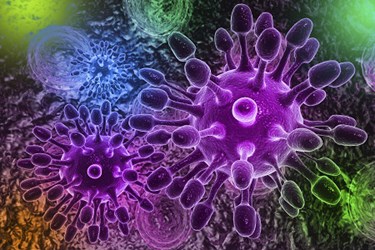Atox Bio Awarded $24M BARDA Contract For Treating NSTIs
By C. Rajan, contributing writer

Israeli biotech firm, Atox Bio, has just won a contract for us to $24 million from the U.S. Biomedical Advanced Research and Development Authority (BARDA) for its novel treatment for ‘flesh eating bacteria’ and sepsis.
The funds will be provided over 4.5 years for the development of Atox’s orphan drug, AB103, to treat Necrotizing Soft Tissue Infections (NSTI, also called ‘flesh eating bacteria’). The company also plans to investigate the drug’s efficacy intreating infections caused by bio-threats that result in sepsis.
The BARDA contract is for an initial $4.4 million over 18 months. If BARDA exercises the subsequent option periods, then Atox can receive funds up to $24 million. The contract covers development of AB103 through manufacturing, regulatory activities and a clinical trial in patients with NSTI. Earlier in July, Atox raised another $23 million in an investment round from SR One, OrbiMed, and Lundbeckfond, to support the clinical development of AB103.
Atox Bio CEO Dan Teleman said, "We are honored that BARDA has recognized the potential of AB103, a novel host oriented therapeutic, to offer a new approach to treating severe infections where there are currently no approved therapies. We look forward to working with BARDA to advance the development of AB103 in NSTI and exploring its potential in bioterror pathogens."
Atox Bio, which is a spin-off of Yissum, the technology transfer company of Hebrew University of Jerusalem, has been developing AB103 as part of an R&D collaboration agreement with Maryland based CRO, Fast-Track Drugs and Biologics.
AB103 is a short peptide immunomodulator which, through a novel mechanism of action, modulates the excessive Th1 cytokine responses caused by Gram-positive bacteria, Gram-negative bacteria, and superantigen toxins that can lead to sepsis. According to the Atox press release, this unique approach of targeting the host response rather than the pathogen has the potential to provide a broad-spectrum approach to treat infections and reduce drug resistance.
AB103 has already shown positive results in a Phase 2 study in patients with NSTI, where the drug met all the end-points.
AB103 is the first drug that has been developed specifically for NSTI. Atox has received Orphan Drug status and Fast Track designation from the FDA, as well as Orphan Drug status from the EMA.
NSTI are rare but deadly infections which progress rapidly, destroying tissue and causing systemic disease that eventually results in multiple organ dysfunction. There are no approved drugs for treating NSTI yet, and the standard of care often requires a combination of antibiotics, surgical procedures, resuscitation, and physiologic support.
